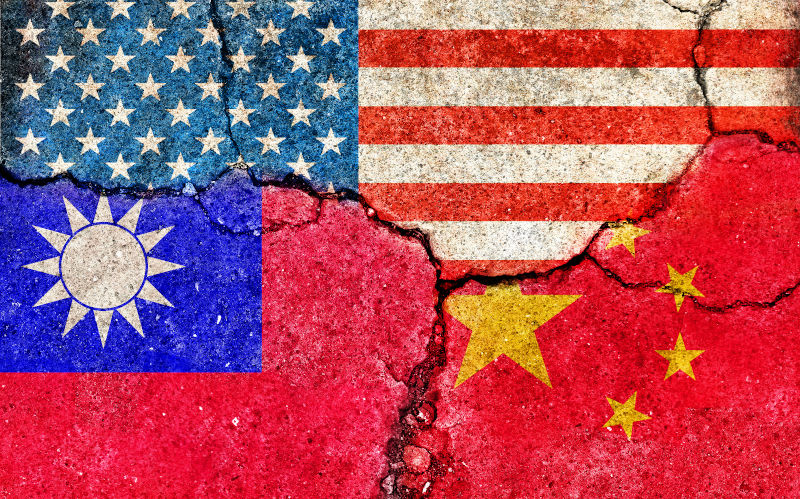The manufactured ‘China threat’ is really about Taiwan’s hidden drive for independence and America’s need to preserve regional dominance.
Magic and politics, if you think about it, are very similar. Both involve making ostentatious moves to distract their audiences from seeing what really happens on stage to produce the desired trick. That’s why “sleight of hand” is such a useful political metaphor.
Those who break the magician’s code of silence are frowned upon. It’s the same with retired politicians who have no filter and speak their mind. Opprobrium and criticism inevitably rain down on them because, to the dismay of the paid media hacks and political apparatchiks, they dare state the obvious and commonsensical.
I have grown increasingly fond of those old pols from down under who, in retirement, find it too alarming not to speak up against their country sleepwalking into a hot war with China on the say-so of Washington, with the full connivance of the Australian political establishment.
First there was Paul Keating, the former Labor prime minister, who made mincemeat of the self-important hacks playing at national security against China at the National Press Club of Australia.
The latest is Bob Carr, the former Australian foreign minister under the Labor government of Julia Gillard. Speaking in an online interview, he said Taiwan should never be a cause for war for Australia.
“If the worst thing that faces the people of Taiwan would be what prevails in Hong Kong today, then we haven’t got a cause for war,” he said. “I’d like to see the national security law no longer apply in Hong Kong, but Hong Kong still has substantially its own system and if that were the outcome that applied in Taiwan, then I can live with that.”
Carr said the one-China policy had preserved peace in the region and autonomy for Taiwan.
“Under the architecture of this little diplomatic formula negotiated by wise men in 1972, we recognise the Chinese claim on Taiwan as a province. That’s a diplomatic formula that has kept the peace.”
Wise words indeed! Unfortunately, there are too many snake oil salesmen promoting the mythical “China threat”. It ranges from China being a threat to its neighbours, the region, and the world at large to democracy, the rules-based international order, the West and civilisation itself. Another similar narrative is that Taiwan must be defended for the future of democracy. Somehow if the island falls, every democracy around the world will be threatened.
What Keating and Carr point out is the obvious: you may not like China, but it is no threat to the national security of Australia, unless Canberra helps light up the geopolitical flashpoints in the Indo-Pacific by joining the Americans, such as under the Aukus nuclear submarines deal.
If you follow their simple commonsensical observations about Australia, you have to question how many other countries are actually not threatened by China.
So, what’s the sleight of hand here? For most ordinary people in the Western world, but especially in the United States, China is a great distraction – a mental abstraction – from the very real, serious and concrete day-to-day problems confronting their societies today. The most extraordinary disinformation campaign is needed to make people fear a notional threat and turn it into a direct threat.
The real moves, of course, lie well-hidden. For some in Taiwan, the unspoken goal is independence for the island. For the American leadership, it’s about preserving its dominance in the region. Their interests coincide, but they can’t be spelled out clearly.
So they have turned it into a fight for democracy, the more universal-sounding the better. Why? Because no outsiders would risk their lives for US hegemony or the island’s independence any more than you would fight for Palestinian independence however much sympathy you may feel for the cause.
But when you are told your own democracy is at stake, that’s a different proposition. What you should ask is, what’s at stake when people warn you about the “China threat” and whose stakes are we really talking about?
Original article published in South China Morning Post on 30 June, 2023
Alex Lo has been a Post columnist since 2012, covering major issues affecting Hong Kong and the rest of China. A journalist for 25 years, he has worked for various publications in Hong Kong and Toronto as a news reporter and editor. He has also lectured in journalism at the University of Hong Kong.

